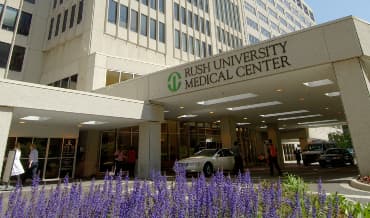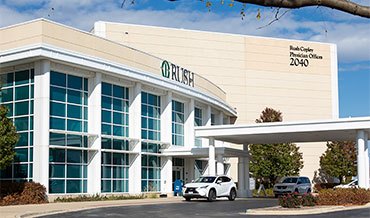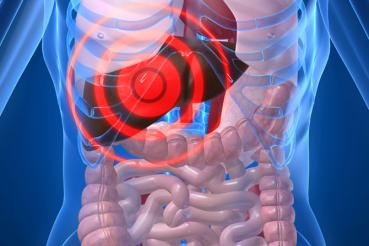The liver performs as many as 500 important jobs in the body, from filtering your blood to turning food into fuel. When you have problems with your liver, a hepatologist can help. Hepatologists are GI doctors (gastroenterologists) who go through additional training just about liver care.
The first step is to understand the cause of your liver disease. Common causes of liver disease include:
- Metabolic dysfunction-associated steatohepatitis (MASH). All livers have some fat, but people with MASH have enough fat in their liver to cause damage. One-third of all Americans are at risk of MASH.
- Alcohol-associated liver disease. Years of heavy drinking damages your liver. Heavy drinking is more than eight drinks per week for women and 15 drinks per week for men. But people who drink less than this may develop alcohol-associated liver disease.
- Autoimmune disorders. Sometimes, the body’s immune system begins attacking the liver. This causes scarring and damage over time.
- Viral infection. An infection (such as hepatitis A, hepatitis B or hepatitis C) can cause your liver to swell.
Each cause of liver disease is treated differently. Our team works closely with our patients to understand their problem, using your patient history, bloodwork and imaging. Once we know the cause of your liver problems, we can create a custom treatment plan that addresses the source of your liver problems. We also work closely with our liver transplant team. For those in end-stage liver disease, transplant can be the best path to recovery.
Rush Excellence in Hepatology Services
- Support for you, no matter the cause. Liver disease has many different causes, from carrying excess weight to alcohol use to autoimmune conditions. Our approach to liver disease treatment includes working with other specialists to get you the best care possible based on the cause of your liver issues. This tailored support can make a huge different in your care.
- Advanced imaging options. Whether you’re newly diagnosed with liver disease or have been living with it for years, we have tools to evaluate your liver without a biopsy.
- Your source for a second opinion. Liver disease can be scary. We want you to feel confident in your treatment plan. Whether you come in person to one of our clinics in and around Chicago or meet with us virtually, we can explain all possible treatment options.
- Your transplant connection. If you qualify for a liver transplant, our program has excellent survival rates. We start working with patients well before they are on the transplant list to make sure they have the best outcome possible, and we continue working with our patients after transplant to help them adjust and care for their new liver.
FAQs About Liver Disease and Services
You may not have any symptoms during the early stages of liver disease. Depending on the cause of your liver disease, you may experience:
- Extreme tiredness
- Abdominal pain
- Nausea and vomiting
- Jaundice (yellowing of the skin and eyes)
People with end-stage liver disease may experience odd body odor, mental confusion and swelling in the belly. It’s important to see a liver specialist if you or your primary care doctor suspects liver disease. It’s much easier to prevent serious liver problems than to try to reverse them.
Many times, someone has an abnormal blood test that indicates a problem with the liver. Additional bloodwork may be needed to figure out the extent and cause of the issue.
We can also use different imaging tools (such as an ultrasound) to look at your liver. These tools tell us if your liver has any damage and if any hardness has developed. We can also look at your family history and lifestyle to understand the potential causes of the liver problem.
Your treatment plan depends on the cause of your liver disease:
- MASH. Losing excess weight can be an important part of treating MASH. There are also newer medications that might be right for you.
- Alcohol-associated liver disease. It’s very important to stop drinking when you have ALD. We work closely with patients to give them the best chance at recovery and healing their liver before major problems begin. We also coordinate with our liver transplant team.
- Autoimmune disorders. Medications can reduce or stop your body from attacking your liver.
- Viral infection. We have effective medications that can end the infection and potential for long-term damage.
We start by asking about other medical issues you may have, your symptoms and your family history. We may also do imaging (such as an ultrasound) and bloodwork. Once we have these results, we will discuss your problems and what your hepatology specialist suspects is the cause. We can also decide the best treatment plan for you.
Yes. Depending on the cause of your liver disease, lifestyle changes can result in years of liver function. People with liver damage should reduce or eliminate their alcohol intake. Losing weight can also help manage your liver issues. We also work with patients to identify any other small (or big) changes they can make that will improve their liver health.
End-stage liver disease is often treated with a liver transplant. You may meet with a transplant hepatologist or a member of our transplant team many months or years before you need a new liver. Our team can help you understand how the transplant process works and what to expect in your specific situation.
Once you are on the list for a new liver, our transplant team works closely with you to give you the best chance at a new, healthy liver.










